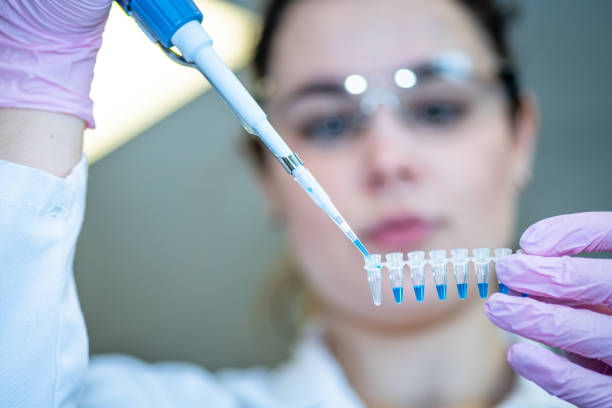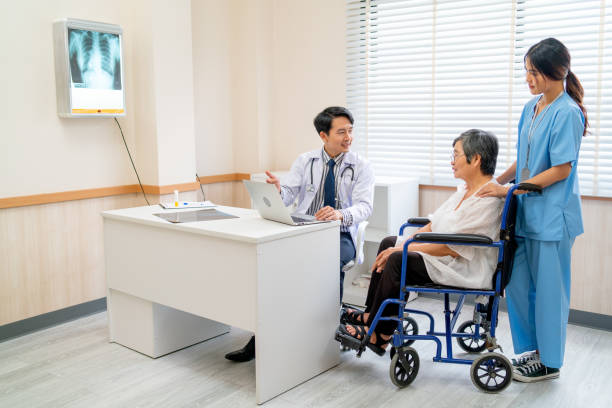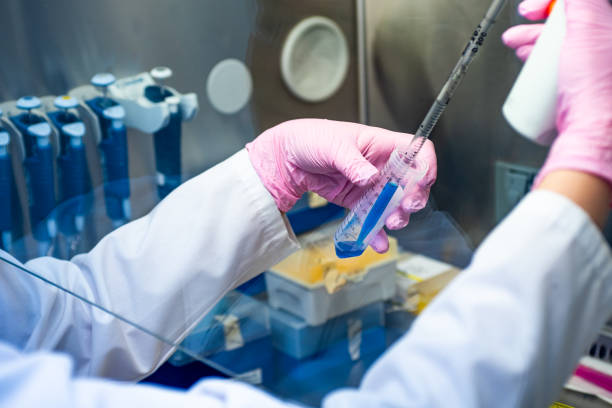Stem Cell: The Future of Regenerative Medicine in Denver
Stem cell research and therapies, also referred to as "regenerative medicine," are gaining worldwide recognition and acceptance as realistic, secure, and effective treatment choices. Recently, Denver, Colorado, has emerged as one of the foremost leaders in stem cell research and therapy, with a particular emphasis on the use of stem cells for regenerative purposes.
This article will examine the future of stem cell-based regenerative medicine in Denver, as well as the ramifications this has for the entire medical community. Potential ethical considerations, financial options, and potential hazards related to the use of stem cell-based therapies will be explored, along with patients' existing thoughts on the use of these therapies.
This article aims to provide a comprehensive overview of the current and potential future development of stem cell therapies in Denver so that the reader can make a more informed decision on the pursuit of such therapies.
What is the Definition of Stem Cells?
Before we discuss how stem cells can aid regenerative medicine, let's define stem cells in detail. According to WebMD, stem cells are "unspecialized cells with the capacity to evolve into several types of specialized cells in the body." In other words, stem cells are capable of transforming into any sort of cell in the body based on their surroundings. This makes them extremely adaptable and valuable in regenerative medicine, as they can be employed to repair damaged or diseased bodily tissue.
What is the Function of Stem Cell Therapy?
Stem cell therapy is a unique medical procedure that has the potential to fundamentally revolutionize how we treat skin and bone diseases, as well as a large variety of other ailments. Apheresis, which involves drawing blood from a patient and separating particular components, such as white blood cells and platelets, is the initial step.
The remaining fraction of the blood contains adult stem cells removed from bone marrow, which are then reintroduced to the patient by intravenous infusion or directly into a diseased or damaged region. Once reintroduced into the body, stem cells begin rapidly repairing any damaged tissues, making them a viable treatment option for people with chronic health difficulties.

Stem Cell-based Treatments Are Surrounded by Moral Concerns
There are ethical concerns with the use of stem cell-based therapies. The potential use of these therapies for unethical goals, along with the use of embryonic stem cells, are two of the most frequently addressed ethical dilemmas. In addition, the potential for long-term repercussions of these therapies, such as changes in gene expression and the inadvertent incorporation of new genetic material, is of major worry to medical professionals. When considering the use of stem cell-based therapies, several ethical factors must be considered.
Medical Community Opinions on Stem Cell Therapies and Treatment
The medical community is optimistic about the possibility of stem cell-based therapies, including platelet-rich plasma therapy and treatments that entail collecting fat from adipose tissue and re-injecting it into diseased or damaged tissue. Despite the accompanying risks, many specialists are adamant that the potential benefits of these treatments outweigh the potential drawbacks, and they continue to advocate for additional investigation into them. Nonetheless, the perspectives of the medical community can change as new knowledge emerges from ongoing studies and trials; therefore, it is essential to remain current with any changes to maintain the highest level of safety for patients undergoing these medicines.
The Patient Perspective on Stem Cell-Based Therapies at Present
Existing patient perspectives on stem cell-based therapy are contradictory. On the one hand, stem cell-based therapies are viewed as a potential therapy option for chronic medical illnesses or diseases by a large number of patients. Many patients, on the other hand, are dubious about experimental treatments and aware of the potential hazards linked with these medicines. In the end, the patient's decision to seek stem cell-based therapies should assess the potential dangers, advantages, and costs involved with the treatments.
Potential Dangers Involved in Stem Cell-Based Therapies
Stem cell-based therapies have a great deal of promise for the treatment of a wide range of medical conditions, but their usage is not without possible dangers that must be considered. Rejection of the stem cells is a concern, as is the introduction of foreign genetic material into the patient's body, which could have lasting consequences.
In addition, as stem cell therapies are still in the early stages of development, the chance of unanticipated benefits or side effects should not be disregarded. As a result, a stem cell procedure must be approached with caution and knowledge of the risks and advantages connected with it.
What Opportunities Exist for Regenerative Medicine Funding in Denver?
Stem cell therapy has the potential to transform medical care, presenting unprecedented chances for the development of therapies and cures. Consequently, additional money and resources are required for cell-based regenerative medicine research, especially in Denver. The city provides several commercial and public sources of support for cell therapy efforts.
Numerous of these are made possible by significant donations from private foundations and research groups specializing in cell growth factors and therapies, providing a vital source of support. With these monies, researchers in Denver will be able to investigate cell therapies for various types of disorders, with the potential to make significant progress in enhancing our health care system as a whole.
How Can Patients in Denver Obtain Therapies Derived from Stem Cells?
Access to stem cell-based therapy in Denver is currently limited. The majority of therapies are still in clinical trials, and the availability of therapies is primarily contingent on the specific illnesses targeted by the therapy. In addition, the bulk of stem cell-based therapies accessible in Denver are experimental; therefore, the possible hazards associated with these experimental therapies must be evaluated before seeking such treatments.

Can Patients Administer Their Own Stem Cell-based Therapies?
Typically, medical professionals in Denver administer mesenchymal stem cell-based therapy. For instance, adipose tissue contains mesenchymal stem cells, which can be employed to restore and heal damaged tissue, cartilage, and joints. Self-administration of these therapies, however, is still in its infancy and has yet to become generally available. Before choosing self-administered treatments, it is essential to thoroughly assess the pros and cons.
What Kind of Assistance is Available to Patients Contemplating Stem Cell-based Therapies?
There are a range of resources accessible in Denver for anyone contemplating stem cell-based therapies. Most notably, a number of groups in the city are devoted to offering information, services, and support to anyone contemplating these treatments. In addition, there are numerous medical professionals and medical institutes that specialize in stem cell-based treatments and are accessible to offer advice and help to those who are considering such therapies.
Considerations
Stem cell-based therapies are rapidly gaining acceptance as a feasible, safe, and effective therapy option for a number of medical ailments and disorders. Denver is rapidly becoming one of the leading cities in the world for stem cell-based research and therapy, and future growth in this field is bright. This article analyzed the potential future of regenerative medicine in Denver, as well as the potential ethical considerations, financial opportunities, and hazards connected with the use of stem cell-based therapies, as well as the viewpoints of present patients on the use of these therapies. Through this essay, we hope that a more educated opinion on the usage of these therapies can be acquired.
If you're interested to know more about future regenerative medecine, be sure to check this blog post from Denver Regenerative Medicine: https://denverregenerativemedicine.com/stem-cell-denver-the-future-of-regenerative-medicine/

